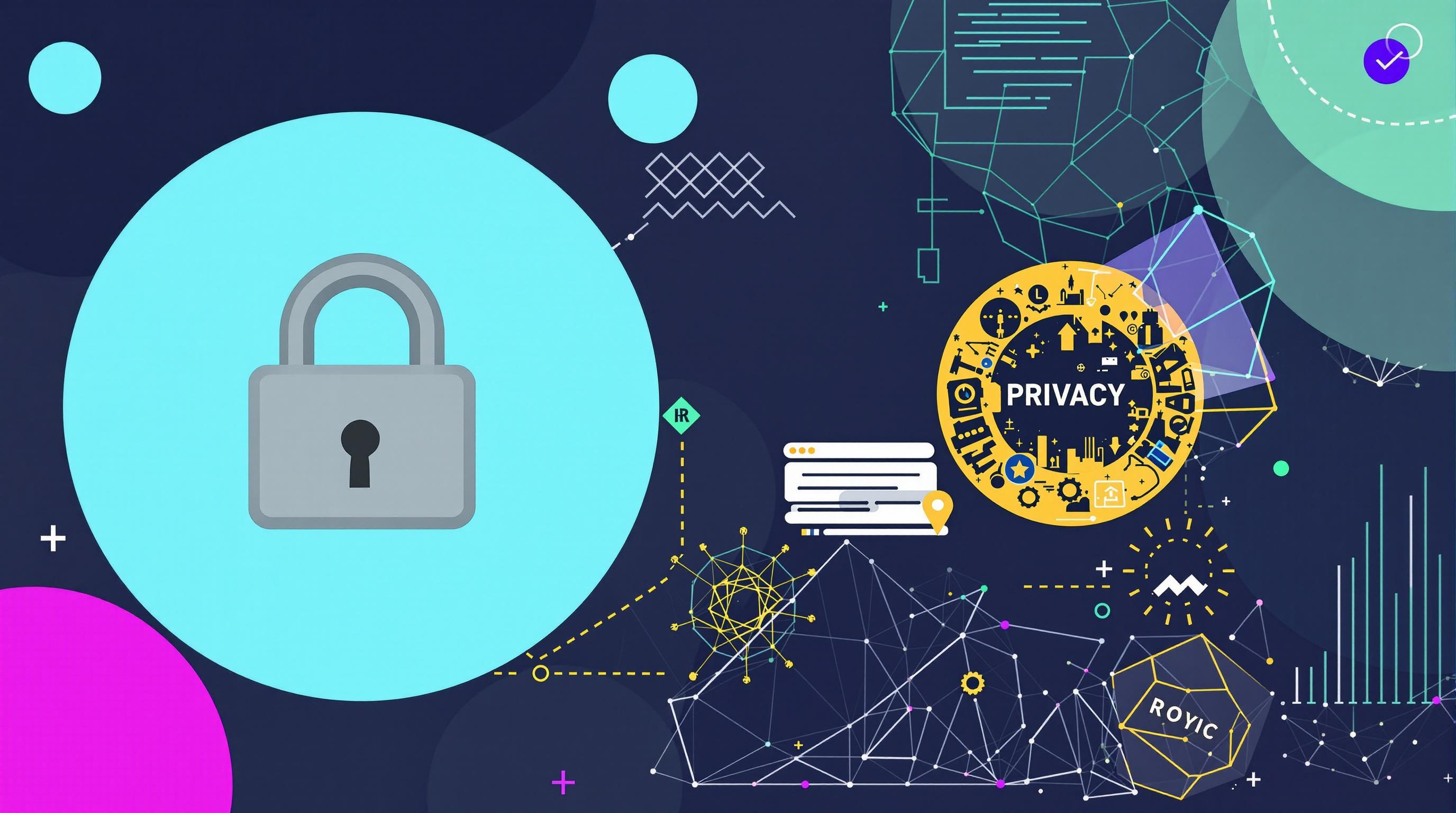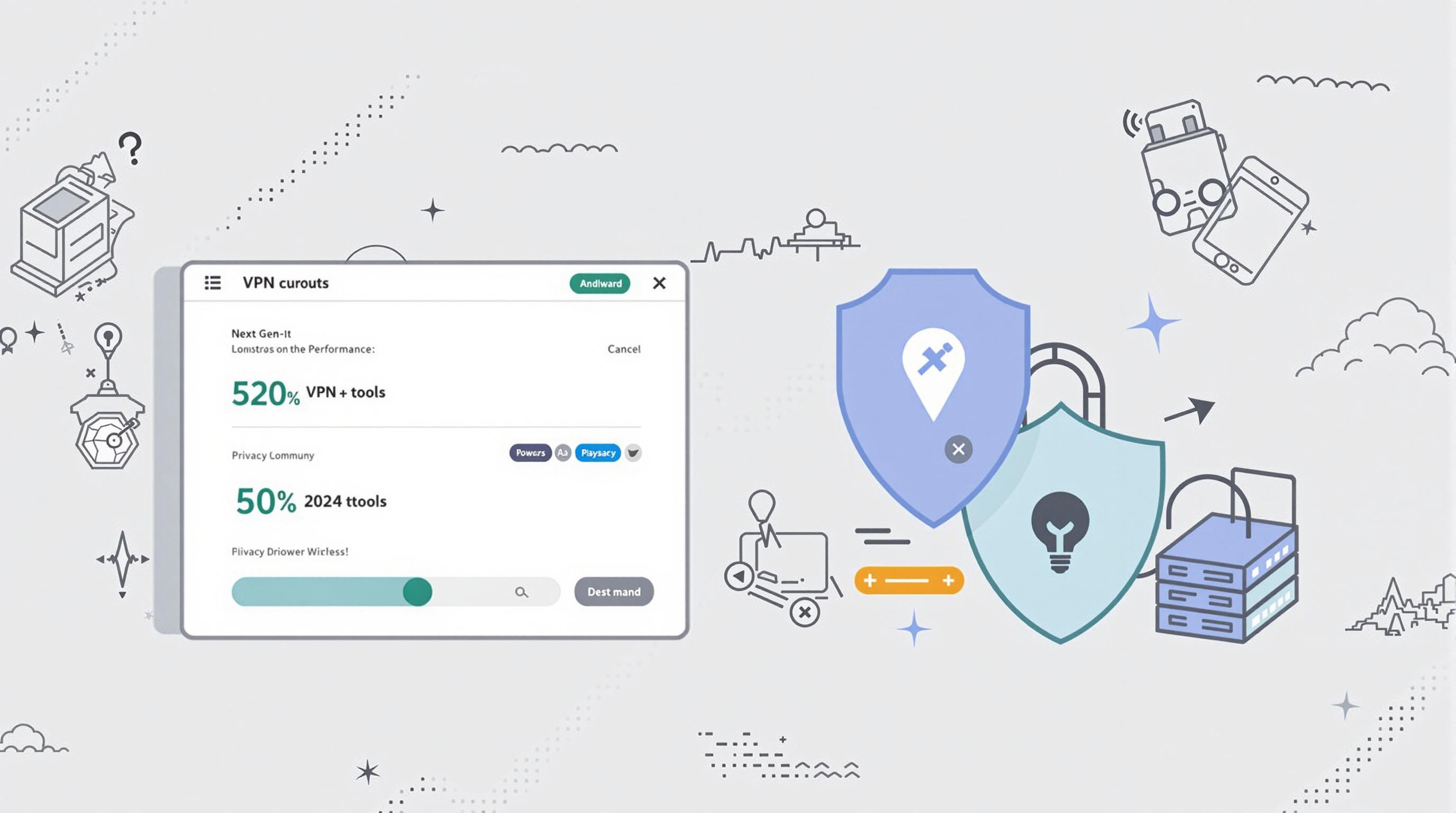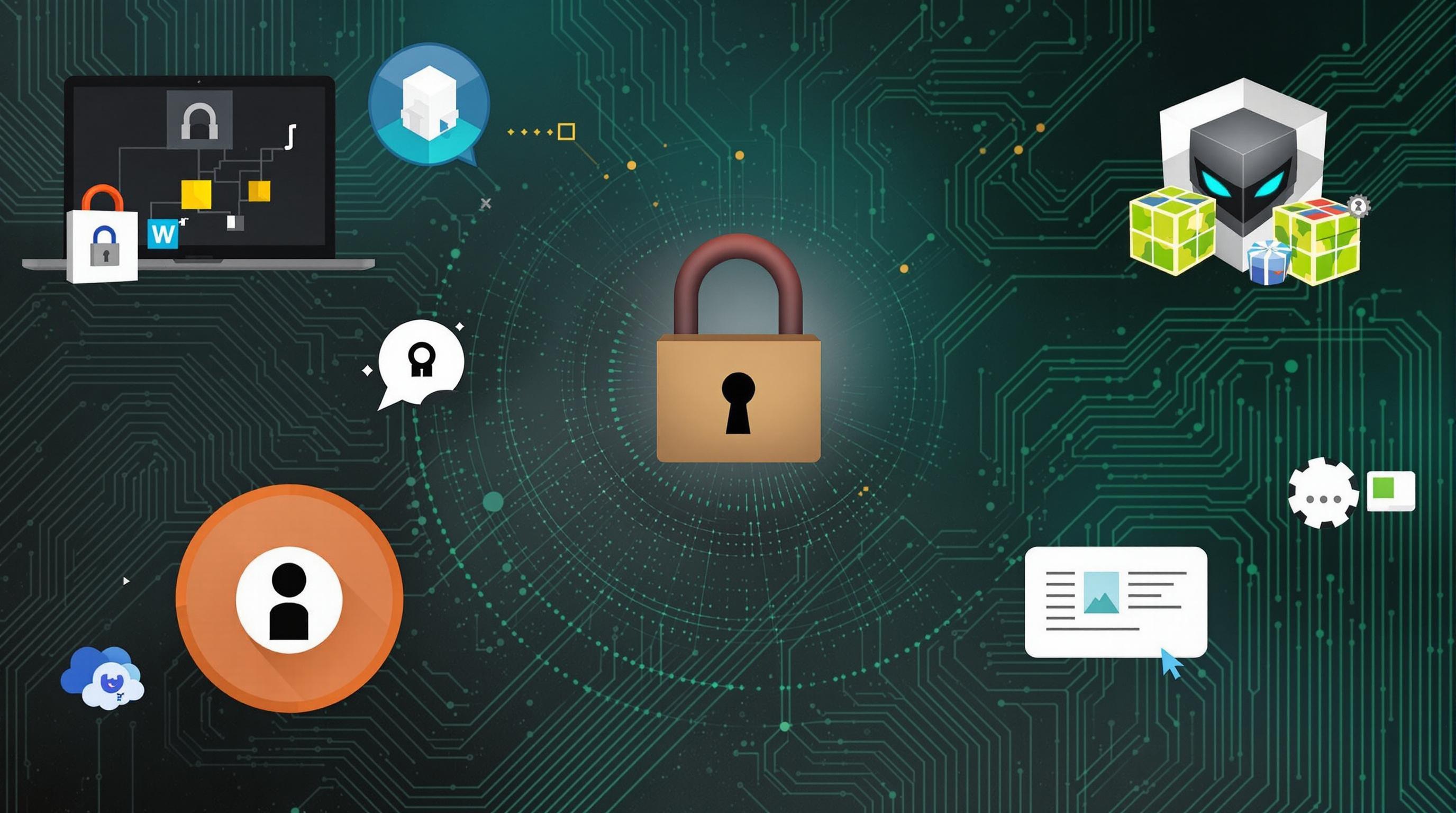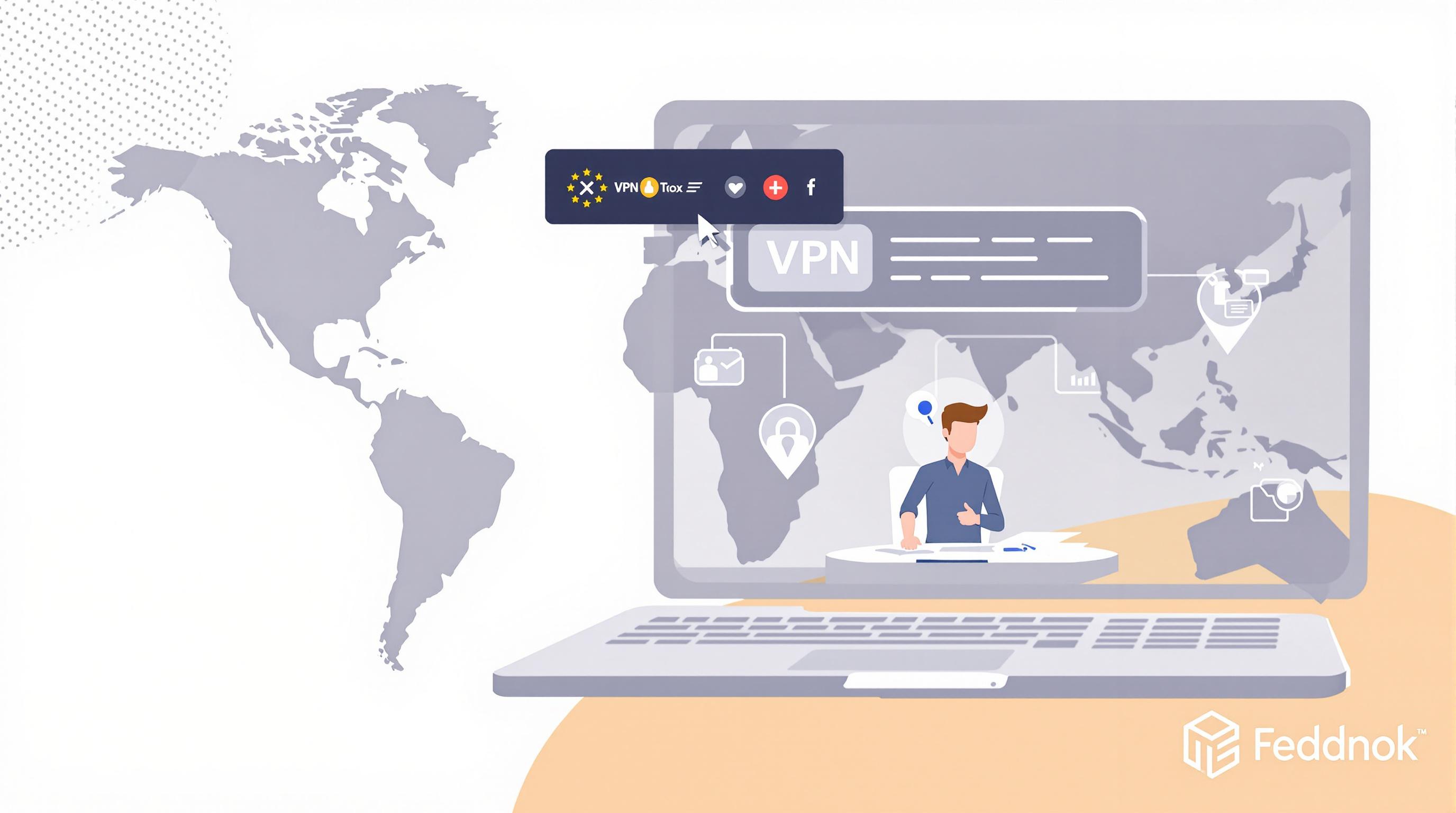Related Articles
- 8 Innovative Password Safes Released Since 2019 Changing How We Protect Our Digital Lives
- Top 6 Revolutionary Password Vaults Debuting Since 2019 That Are Disrupting Cybersecurity Norms
- 7 Innovative Browsers Released Since 2019 That Redefine Online Confidentiality and User Control
- Exploring Psychological Barriers to Adopting Enhanced Mail Safeguards Among Diverse User Groups
- Top 6 Privacy-Focused Browsers Launched Since 2019 That Outsmart Data Trackers Effortlessly
- How Antivirus Software Influences Environmental Footprints: Assessing Energy Use and Electronic Waste Trends
Top 8 Next-Gen Privacy Tools Released Since 2019: Expert Reviews and Ranking for Maximum Security
Top 8 Next-Gen Privacy Tools Released Since 2019: Expert Reviews and Ranking for Maximum Security
Top 8 Next-Gen Privacy Tools Released Since 2019: Expert Reviews and Ranking for Maximum Security
Introduction
Privacy in the digital age has become a frontline defense for users against data breaches, surveillance, and cyber threats. Since 2019, a new wave of privacy tools has emerged, promising robust protection tailored to evolving online risks. This article dives deep into the top 8 next-gen privacy tools developed in this period, examining expert reviews and ranking them for maximum security.
Our selection criteria focused on encryption strength, transparency, user control, and adaptability. We aim to guide readers in choosing tools that align with both individual privacy needs and professional security demands.
With technology advancing rapidly, keeping data secure requires more than standard antivirus or VPNs. These eight tools represent the cutting edge, combining innovation with reliability. Each section details one tool, offering clear insights and expert opinions.
1. Proton Mail (Enhanced Features Since 2019)
Proton Mail has long stood as a beacon for encrypted email communication. Since 2019, it has introduced advanced end-to-end encryption protocols and integrated contact verification to thwart spoofing. Its zero-access architecture ensures not even Proton can read your emails.
Experts praise its open-source cryptographic foundation, fostering trust and continuous improvement. While primarily an email tool, Proton Mail's ecosystem, including ProtonVPN, provides a comprehensive privacy solution. According to a 2022 privacy report by AV-Comparatives, Proton Mail ranks high in encrypting user data effectively.
The platform remains user-friendly without compromising security, making encrypted communications accessible to both novices and experts. Proton Mail's evolution signals email privacy is far from obsolete, adapting instead to new threats.
2. Tor Browser (Updated Network Mechanisms)
Tor Browser continues to be the gold standard for anonymous web browsing. Since 2019, it has enhanced its defense against tracking through adaptive circuit-building techniques and integration with privacy-focused DNS resolvers.
Security analysts highlight Tor's layered encryption and volunteer-powered relay network as unmatched in anonymity preservation. New features reduce fingerprinting risks, a key weakness in older versions, making Tor a critical tool against surveillance.
However, users must balance performance with privacy; the complex routing can slow browsing speed. Still, the consensus remains that Tor is indispensable for users requiring strong online anonymity, including journalists and activists.
3. Signal Private Messenger (Post-2019 Enhancements)
Signal’s encryption protocol sets the industry benchmark for private messaging. Updates since 2019 have added disappearing messages, enhanced group privacy controls, and encrypted backups to extend security without compromising usability.
Experts commend Signal’s open-source software and minimal metadata retention policies. The Electronic Frontier Foundation (EFF) consistently rates Signal highly for its technical transparency and rigorous privacy practices.
Signal’s simple interface belies its robust protections, encouraging widespread adoption. Its commitment to privacy has made it a standard for secure communications among security professionals globally.
4. Bitwarden (Advanced Password Management)
Bitwarden has emerged as a leading cloud-based password manager since 2019, bolstering its end-to-end encryption and offering self-hosting options for increased control. It supports biometric authentication and hardware security keys for multi-factor authentication.
Cybersecurity reviewers note Bitwarden’s balance of security and ease of use, emphasizing transparent code and regular security audits. Its zero-knowledge framework ensures only users access their encrypted vault.
With data breaches escalating, Bitwarden equips users with a secure way to manage credentials, mitigating risks from password reuse and phishing attacks. Its ongoing improvements make it a top choice for individual and enterprise security.
5. Tails OS (Privacy-Focused Operating System)
Tails OS is a live operating system that protects users by routing all connections through the Tor network. Updates since 2019 have improved hardware compatibility, persistent storage options, and security against memory leaks.
Its design allows users to boot securely from removable media, ensuring no traces on host computers. Privacy advocates value Tails for its comprehensive approach to anonymity and its inclusion of cryptographic tools by default.
While it demands technical proficiency, Tails remains unmatched for users needing temporary but high-security environments. Its reputation among privacy experts reinforces its place in the security toolkit.
6. Mullvad VPN (Privacy-First Virtual Private Network)
Mullvad VPN has gained acclaim for its commitment to anonymity, operating without account creation and accepting cash payments. Since 2019, it enhanced its wireguard implementation, offering faster and more secure connections.
Privacy reviews highlight Mullvad’s strong no-logging policy and independent audits validating its practices. It also incorporates multi-hop routing to further obscure user activity from surveillance.
Its rigid stance on privacy, combined with straightforward pricing and open-source applications, cements Mullvad as a preferred VPN for privacy-conscious users worldwide.
7. Brave Browser (Built-in Privacy Features)
Brave Browser integrates ad-blocking, tracker prevention, and HTTPS upgrades by default. Since 2019, Brave added support for decentralized web protocols and privacy-preserving analytics, enhancing both security and browsing efficiency.
Security experts recognize Brave’s approach as a game-changer in user privacy, reducing data footprints without requiring complex setups. Its Chromium base ensures compatibility with most websites while maintaining privacy.
While not a full anonymity network, Brave strikes a practical balance between user privacy and usability, suitable for everyday browsing with strong privacy mitigations.
8. Standard Notes (Encrypted Note-Taking App)
Standard Notes offers end-to-end encrypted note-taking with a focus on simplicity and extensibility. Updates since 2019 introduced encrypted file attachments and two-factor authentication, enhancing both privacy and functionality.
Security researchers value its strict open-source policies and minimal data collection. The ability to self-host data adds another layer of control for advanced users seeking total privacy.
For professionals handling sensitive information, Standard Notes ensures that personal and work notes remain confidential, protecting against leaks and unauthorized access.
Conclusion
The landscape of privacy tools since 2019 reflects a significant leap forward addressing modern security challenges. These eight solutions represent the best in encrypted communication, anonymity, password management, and secure browsing.
Each tool brings unique strengths, making a layered approach advisable. Combining email encryption with strong VPNs and secure messaging platforms builds resilient privacy defenses. Matching tools to use cases maximizes security benefits.
As data threats grow increasingly sophisticated, staying informed and adopting next-generation privacy tools is critical. Users must prioritize transparency, encryption standards, and consistent updates when choosing their privacy arsenal.




